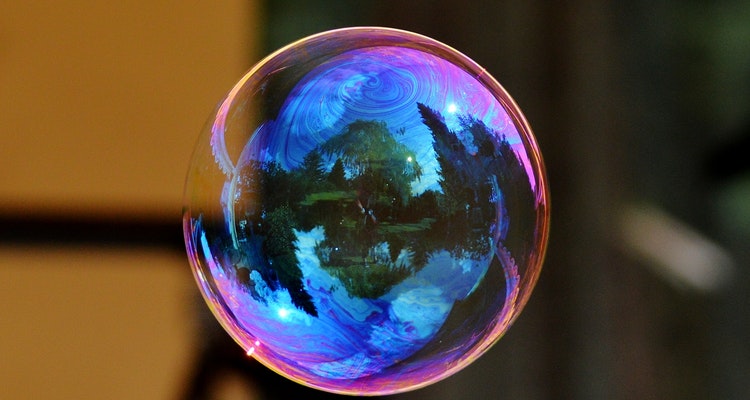
Photo Credit: pexels
Increasingly, we live in an era in which people get their news from social media. It’s not just that they are supplementing their traditional news consumption with social media – it’s that social media has become their sole source of information. And that’s very dangerous, as we’ll see below.
The “filter bubble” effect
More than a decade ago, Eli Pariser popularized the concept of the “filter bubble.” What he had in mind was a world in which people only receive news and content that supports or reinforces their own world view. Over time, he said, the content being shown to you gets filtered to such an extent that you simply can’t comprehend a reality in which people might have contrasting views. You are literally living inside a bubble.
Take politics, for example. Whether you are on the Left or Right side of the political aisle, you are probably only consuming content that feeds into your particular political leaning. So, if you’re a Biden supporter, you’re probably getting all the new Dark Brandon memes, as well as plenty of news stories to suggest that the economy is humming along nicely, the wars in Ukraine and the Middle East are going as planned, and that the border problem is no big deal. Likewise, if you’re a Trump supporter, you’re probably getting all the new MAGA memes, as well as plenty of news stories to suggest that the economy is in terrible condition, the wars are going poorly, and the border is a mess.
You can see the problem here. People are literally living in two different realities, and two different filter bubbles. Once the social media algorithm knows where you stand on an issue, it will keep feeding you more and more of the same content, helping to convince you that your chosen reality is the correct one. You’ll be convinced that (a) Biden is an idiot or (b) Trump is an idiot. You’ll also be convinced that everybody in your social circle feels the same way, and that only wackos on the Far Right or the Far Left could possibly feel differently.
Political polarization
Even worse, you’ll become so convinced of your viewpoint that you’ll become increasingly vocal in your support or disapproval of any political issue. The “filter bubble” effect has told you that your worldview is correct, so you’ll be very comfortable leaving nasty comments wherever you go on social media. Why tell someone that they are wrong, when you can call them a “Nazi” or a “Communist” or a “racist” or an “anti-Semite”? After all, social media has convinced you that it’s correct to do so, right?
Wrong. This is why our society is so polarized today. It’s almost impossible to have a rational debate with someone before they stop listening to you and call you a “Nazi” or a “Communist.” Even mainstream politicians now reach for the “Hitler” comparison whenever they can. As might be imagined, this is very dangerous. It’s no wonder people say that they are losing friends left and right on social media, and why dystopian films like “Civil War” have struck a chord with so many people.
Breaking the cycle of misinformation and disinformation
Finally, there’s the matter of misinformation and disinformation. Since social media content is so easy to create and share, it’s perhaps no surprise that so much misinformation is out there. People don’t read full articles anymore, just the titles. So they don’t bother to fact-check, or to challenge any of the author’s assumptions. Their primary goal is to share that content as quickly as possible and rack up those likes and shares.
So what can be done going forward? In many ways, we can’t put the genie back in the bottle, and pretend that we’re all going to tune into the “nightly news” (how quaint of a term!) every night. The news cycle is now 24/7, and social media is the only way to keep track of all the latest news and memes.
Perhaps the only thing we can do these days is promise to at least listen to the opposing side, to hear what they have to say, and to respond in a logical, rational way. You might be surprised – this approach actually worked in the era before Facebook, Instagram, and TikTok!